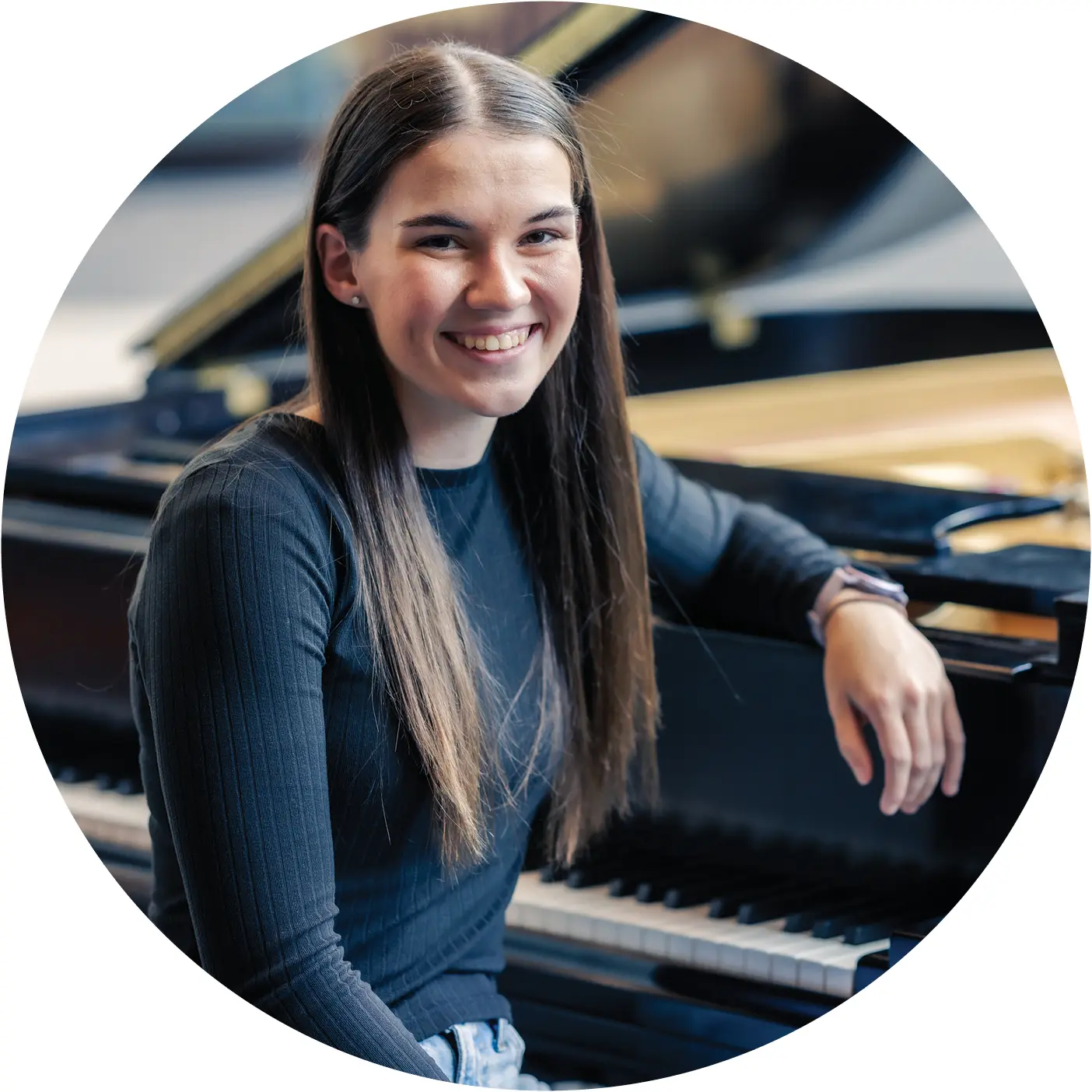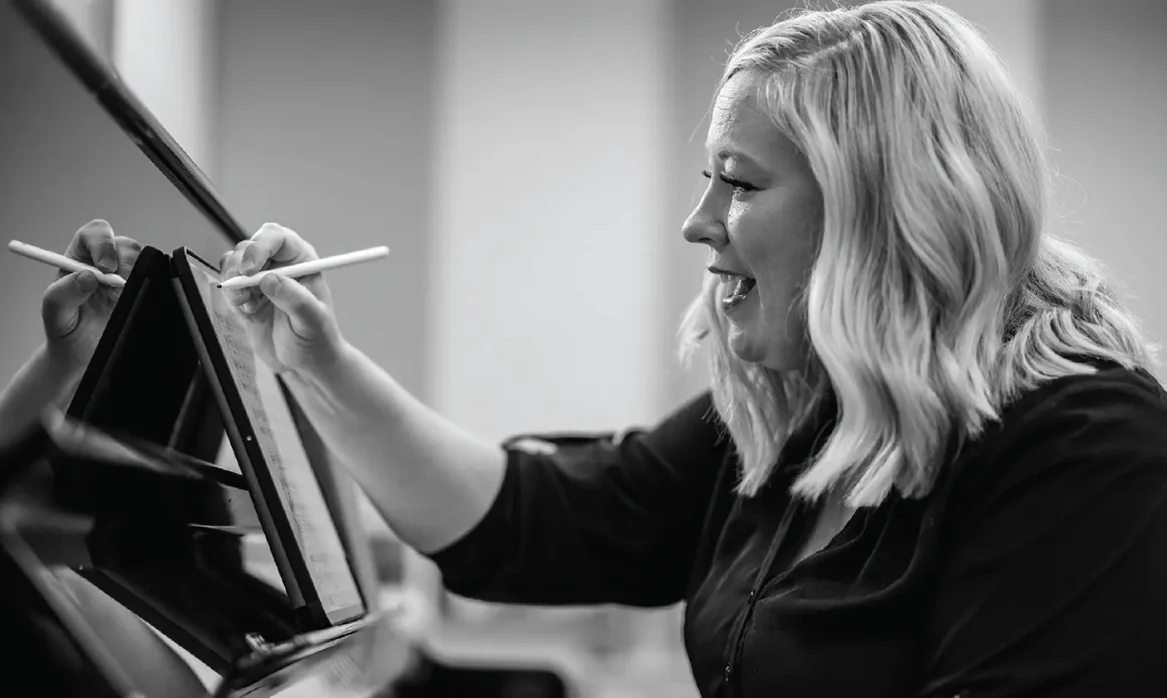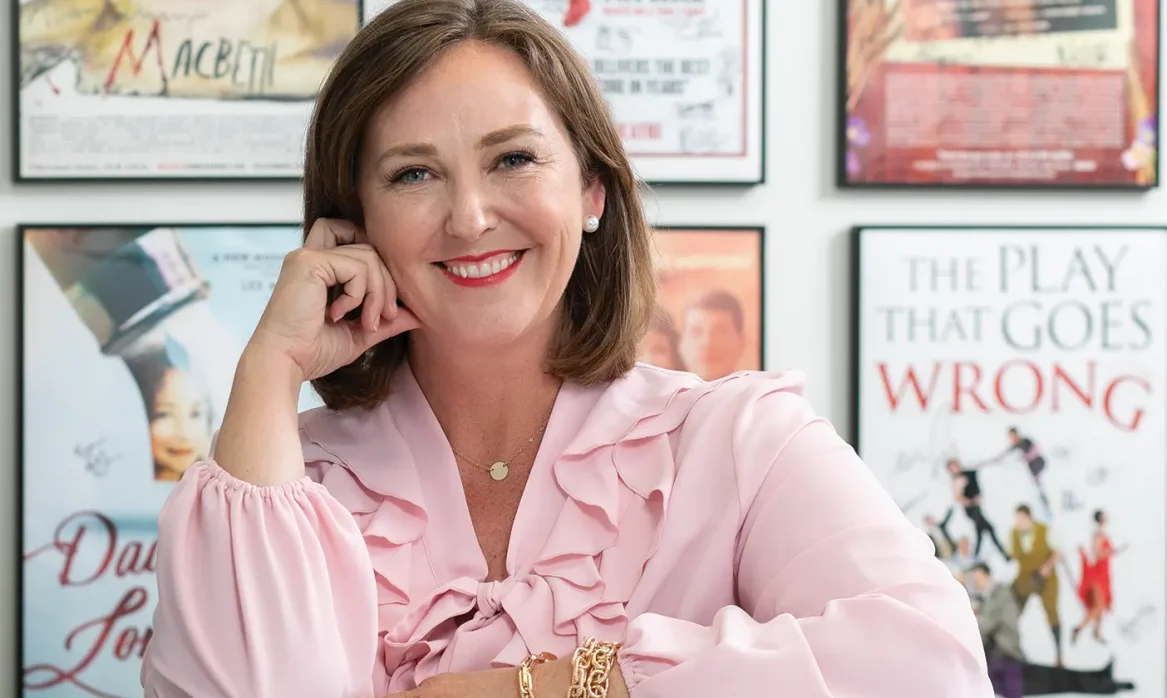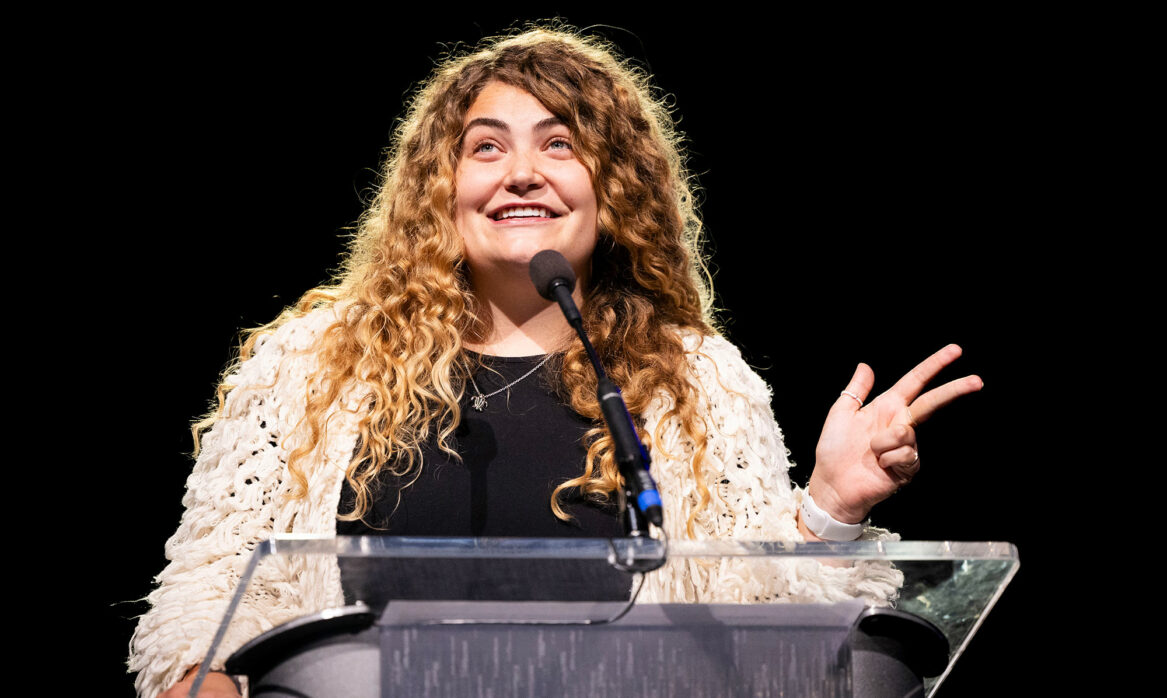For BYU Homecoming 2024, descendants of George H. Brimhall sponsored an essay contest honoring Carl F. Eyring (BA 1912), a professor of physics and mathematics at BYU from 1915 to 1951. International relations major Elizabeth M. Sturgill (’27) wrote this winning essay.

As it turned out, the wrong note was far more jarring in a concert hall than it was in my living room.
My fingers rested limply on the piano keys in front of me, immobilized by sheer panic while my mind raced with a million regrets and “should haves.”
“I should have practiced,” I cursed myself silently. “Why did I think I could just get up here and wing this?”
Yet no amount of self-scolding could undo the disaster I had gotten myself into. I was cowering on a piano bench in the middle of a massive concert hall, burning under the glare of the spotlight and the critical gaze of the panel of judges waiting for me to impress them. I could only imagine the looks on their faces once I started to play—or rather, once a stream of wrong notes and dissonant chords reverberated through the concert hall.
Carl F. Eyring could have taught me a thing or two about reverberation. As the brilliant acoustic physicist that he was, he could have described how sound energy decays in different spaces or presented me with a mathematical formula to explain why the clashing chords seemed to be absorbed by my living room carpet but echoed like a cannon blast in that concert hall.
Yet I believe he would’ve taken a different approach. As a man who “felt his greatest influence was in the lives of his students,” he may have gently reminded me of the importance of dutiful preparation rather than overconfidence or advised me to be “courageous enough to see [my] faults and decisive enough to do something about eliminating them.” Courage and decision. Practice and progress. Study and faith.
Little by little, I evolved from a passive piano player to an active and devoted learner.
I walked off the stage that day resolved not just to play the piano but to master it. I studied music theory, time signatures, and chord progression. To conquer my stage fright, I volunteered to play at church and community events. Little by little, I evolved from a passive piano player to an active and devoted learner.
Eyring was also a devoted student. Whether it was conducting physics experiments in a yacht off the coast of San Diego or testing jungle acoustics during the rainy season in Panama, he meticulously studied the world around him and found answers that are still referred to by physicists today.
Yet he wasn’t just a man of great intellect—he was also a man of faith. Eyring frequently spoke of the importance of combining experimentation with inspiration. He simultaneously labored as dean of the College of Arts and Sciences at BYU while serving as a member of the general board of the Deseret Sunday School Union and published his scientific findings in The Journal of the Acoustical Society of America around the same time he wrote Good Tidings to All People, a Sunday School manual about Jesus Christ’s life. Even as he suffered from advanced leukemia that would eventually take his life, Eyring oversaw the construction of a new science building at BYU that bears his name and legacy; now thousands of students flock to the Eyring Science Center to enhance their intellect and deepen their faith.
Almost a century after Eyring taught his first physics class—and about five years after my first fateful piano performance—I found myself on yet another stage in front of yet another crowd of observant spectators. While the scene may have been the same, the girl sitting on the piano bench was not. Rather than rely on raw capability, I had learned that by dutifully studying and consistently practicing, I could put my faith in what I had learned when my time in the spotlight came.
My hands flew across the piano keys, a blur of black and white. Emotion and resilience combined to create a soulful melody that resonated through the concert hall. This time, rather than sounding like a cannon shot, my musical reverberations seemed to echo the message of Eyring all those decades ago: Courage and decision. Practice and progress. Study and faith.












